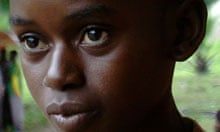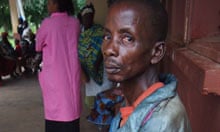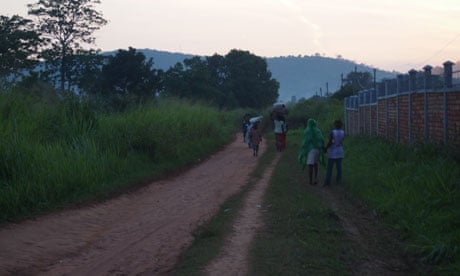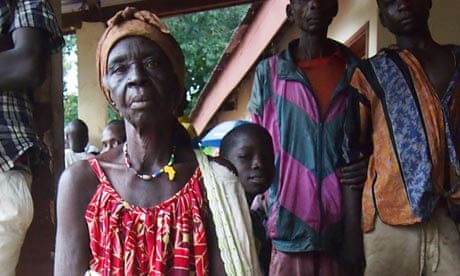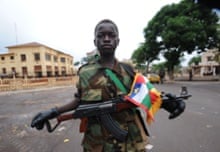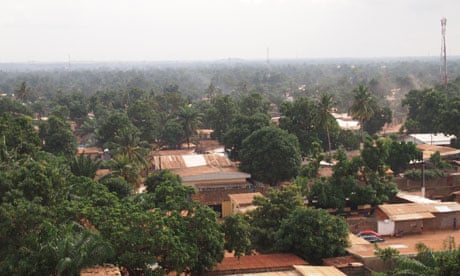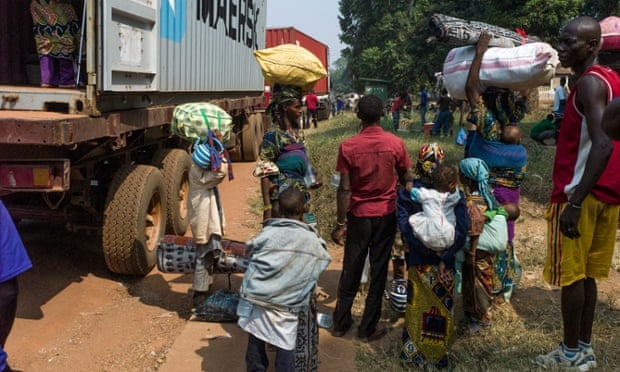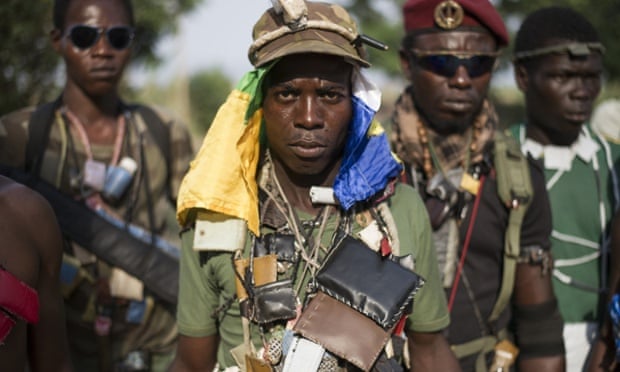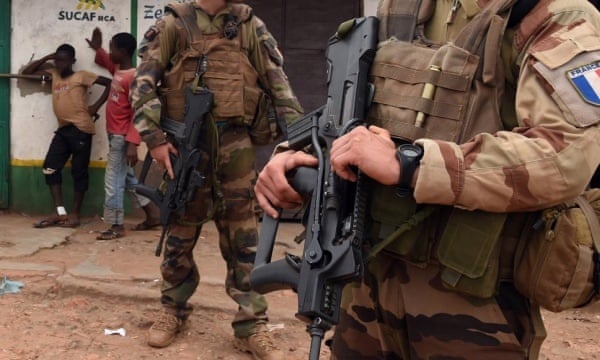Published 29/04/2015 | 22:13

Protesters outside Nigeria House in London demonstrating for the girls abducted by Boko Haram
Some of the nearly 300 girls and women freed
by Nigeria's military from the forest stronghold of Boko Haram were so
transformed by their captivity that they opened fire on their rescuers,
and experts said they will need intensive psychological treatment.
The military was flying in medical
and intelligence teams to evaluate the former captives, many of whom
were severely traumatised, said army spokesman Colonel Sani Usman.
He
said earlier that none of the schoolgirls kidnapped from the
north-eastern town of Chibok a year ago appeared to be among the 200
girls and 93 women rescued yesterday. But today he said further
screening was needed before their identities could be determined.
"The
processing is continuing; it involves a lot of things because most of
them are traumatised and you have got to put them in a psychological
frame of mind to extract information from them," Col Usman said.
A
counsellor who has treated other women freed from Boko Haram captivity
said some had become indoctrinated into believing the group's Islamic
extremist ideology, while others had established strong emotional
attachments to militants they had been forced to marry.
Some
of the about 90 women and girls freed by the army four months ago in
Yobe state, for example, had upset their community on their return by
maintaining that the militants were good people who had treated them
well, the counsellor told the Associated Press.
"The
trauma suffered by the (abducted) women and girls is truly horrific,"
said Amnesty International's Africa director for research and advocacy,
Netsanet Belay. "Some have been repeatedly raped, sold into sexual
slavery or indoctrinated and even forced to fight for Boko Haram."
That
is what appeared to have happened this week when the Nigerian military
said troops rescued the women and girls while destroying four Boko Haram
camps in the Sambisa Forest.
Boko
Haram used some of the women as armed human shields, a first line of
defence who opened fire as the troops approached, according to an
intelligence officer and a soldier who were in Sambisa during the
rescue. The soldiers managed to subdue the women and round them up, said
the men.
No-one knows how many
captives are in the hands of the Islamic extremists, who have carried
out a campaign of killings and kidnappings that has seen thousands of
girls, women and young men seized to be used as sex slaves and fighters.
Amnesty International said earlier this month that at least 2,000 women
and girls have been taken by Boko Haram since the start of 2014.
Among
them are the nearly 300 girls abducted from their school in Chibok on
April 14 2014. Dozens escaped as they were taken in trucks into the
Sambisa forest, but 219 remain missing.
The
plight of the schoolgirls, who have become known as "the Chibok girls",
aroused international outrage and a campaign for their release under
the hashtag #BringBackOurGirls. Their kidnapping brought Boko Haram,
whose nickname means "Western education is forbidden" in the local Hausa
language, to the world's attention, with even US First Lady Michelle
Obama becoming involved as she tweeted a photograph of herself holding
the campaign sign.
Nigerian
military and counter-insurgency spokesmen have said they have
information indicating at least some of the Chibok girls still are being
held in the Sambisa Forest.
Col
Usman said operations were continuing today, as the military evacuated
the women and girls freed a day earlier and took them to an undisclosed
location.
"Sambisa Forest is a
large expanse of land, so what we were able to get is four out of
several terrorist camps in the forest," he said of the national game
reserve that sprawls over 60,000 square kilometers (23,170 square
miles).
Some kidnapping victims
who have escaped from Boko Haram have been detained for weeks for
security screenings, and Amnesty International called on authorities "to
ensure that the trauma of those 'rescued' is not exacerbated by lengthy
security screening in detention".
"Amnesty
International is calling on the authorities to ensure that their
physical and psychological well-being is paramount," the group said in a
statement.
Former British prime
minister Gordon Brown, now the UN special envoy for global education,
welcomed the rescue of the girls and women but called for the immediate
release of all abducted girls.
"It
is time to end the nightmare. For a year, families have not known
whether their daughters are dead or alive, married off, sold off or
violated as a result of their captivity," he said. "We want all girls
released."
Nigeria's military
largely stood by last year as Boko Haram took over dozens of towns and
declared a large swath of north-eastern Borno state an Islamic
caliphate.
That changed when a
multinational offensive led by Chad began at the end of January. Now,
Nigeria's military says it has driven the Islamic extremists out of all
towns with help from troops from Chad and Niger while Cameroonian
soldiers have been guarding their borders to prevent the militants from
escaping.
A month ago the Nigerian
military began pounding the Sambisa Forest in air raids, an assault
they said earlier they had been avoiding for fear of killing kidnapped
women and girls, or inciting their captors to kill them.
Boko
Haram continues to attack isolated communities. The government of
neighbouring Niger said a Boko Haram attack on Karamga island in Lake
Chad over the weekend killed 156 militants, 46 soldiers and 28
civilians.
Press Association

